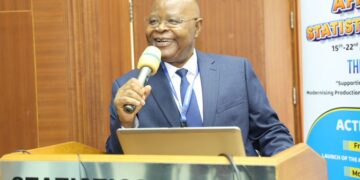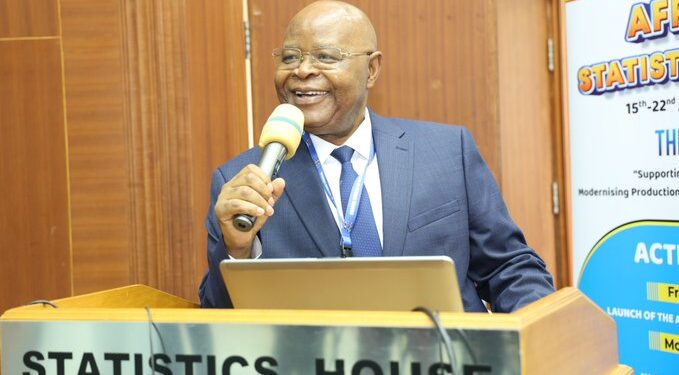Dr. Chris N. Mukiza, the Uganda Bureau of Statistics (UBOS) Executive Director, has appreciated the working partnership with the Education sector, given that it informs the Education data collected by UBOS.
According to Dr Mukiza, Africa celebrates one day (18th November) but Uganda chose to celebrate a week given the importance of Statistics. The Africa Statistics Week was launched last Friday during a media breakfast and engagement with Government Communicators.
During a high-level engagement with Education Stakeholders on Monday, Dr. Mukiza said Uganda still ranks high as the best Statistical agency and many countries are benchmarking with UBOS based on the success registered by UBOS.
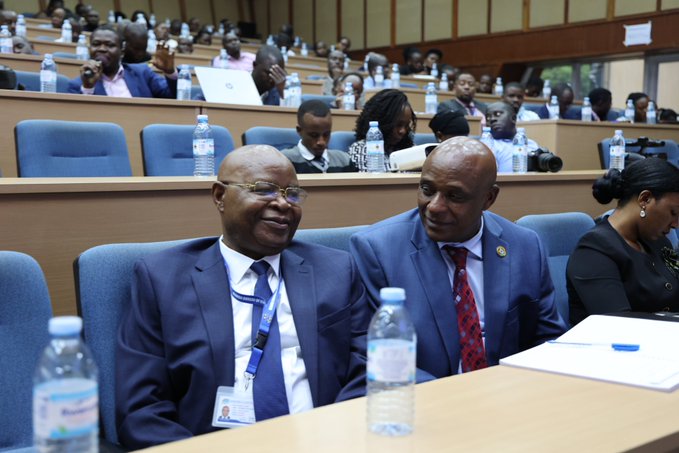
He re-emphasized the Bureau’s commitment to ensuring that data provision, access, uptake and use are upheld.
In his speech, Dr. Albert Byamugisha, the UBOS Board chairperson, thanked Education sector stakeholders for the collaboration, partnership, and coordination with UBOS to ensure that the Bureau delivers on its mandate.
“Let us all be ambassadors of data use in our respective institutions since Statistics remains the backbone of evidence-based decision-making,” he noted.
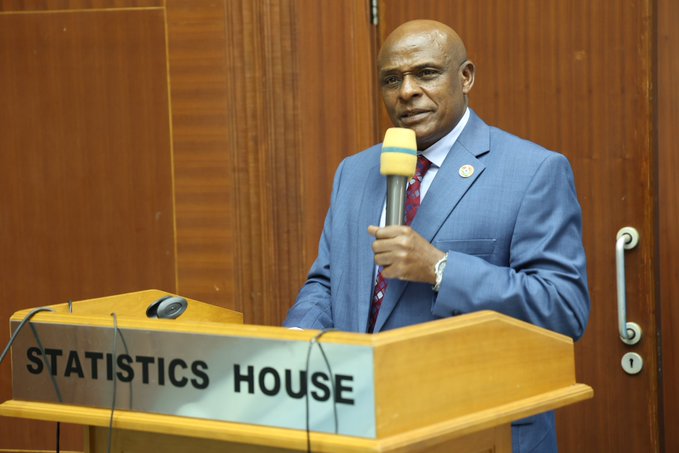
Dr. Byamugisha has thanked the State Minister for Planning Hon. Amos Lugoloobi for his guidance to the Bureau and for always locating finances that help to execute UBOS activities.
He also thanked the government of Uganda for providing the requisite funds to push the Bureau through its errands. “I also thank the UBOS ED, Dr. Chris Mukiza for the timely release of data. We are going to release the final Census 2024 results in December, as our Census roadmap detailed.”
Education Statistics
According to George Kawase, a senior Statistician at UBOS, the number of learners in primary school by sex is 4.5 million males and 4.4 million females.
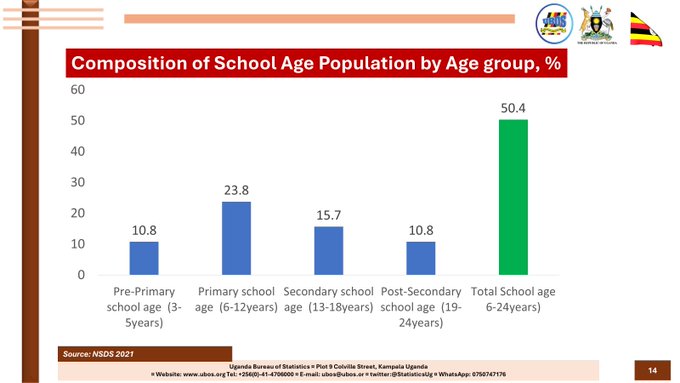
He said the average household expenditure on education in government schools ranges from Shs440,000 at the primary level and Shs1,396,000 at the secondary level.
Kawase cited funding as the main reason for leaving school among persons aged 6-24 years.
He said the literacy rate is 74% of persons 10 years and above. “77% of males and 72% of females are literate,” noted Kawase.
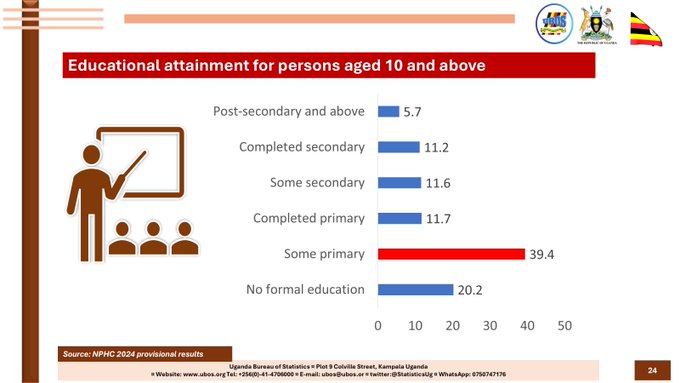
Kawase, however, cited an education mismatch of the Population (14-64 years) in employment, saying only 46.6% match the employment requirements.
Challenges
In its report, UBOS cited some challenges facing the education sector including the existence of several systems that are not inter-linked, low quality of administrative data (poor record keeping, poor turn-around time, missing vital variables, etc), limited resources (financial, human and infrastructure) for regular data collection and limited cooperation from data providers especially for establishment based surveys.
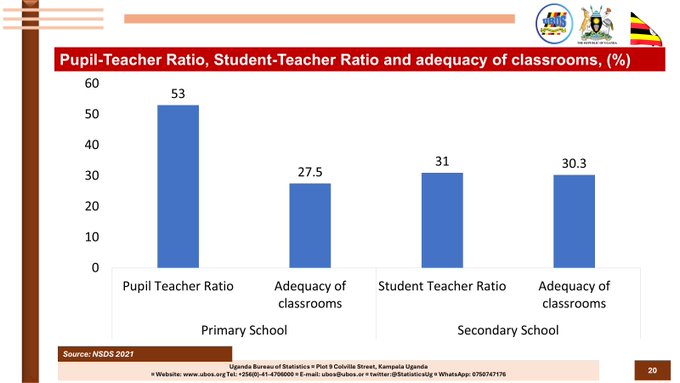
The report also cited the hurdle of aligning international school curriculum to local curriculum in surveys and censuses and limited standardization and harmonization of statistics compiled e.g. measurement of dropout rate, completion rate, transition rate, education attainment (UNESCO standard) among others
Moving Forward
Education experts including Mr. Jim Mugunga from the Ministry of Finance, Rev. Prof. Dr. Samuel Lubonga, Mr. Vincent Ssozi, Assistant Commissioner Statistics at the Ministry of Education and Sports, and Dr. Mary Goretti Nakabugo from UWEZO who attended the event, committed to modernizing the production of education statistics and systems fit-for-purpose statistics and strategic public-private partnerships for modernizing education statistics.
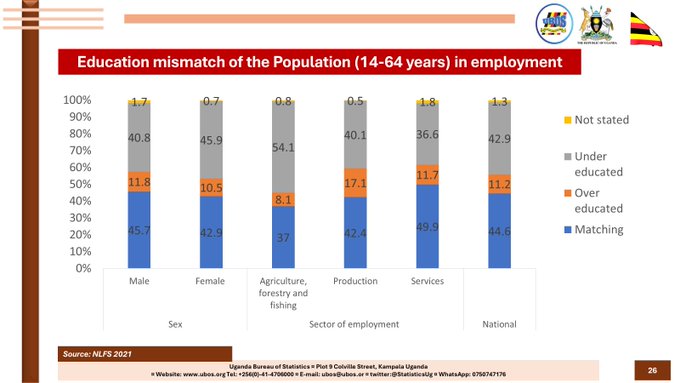
In its report, UBOS recommended conducting a Baseline Education Census every 10 years, embracing technological advancements, and operationalizing an Education Statistics Technical Working Group (TWG) for harmonization, domestication, and standardization of statistics produced nationally and internationally.
It also recommended increasing investment in education research agenda, promoting peer-to-peer sharing to improve the quality of statistics produced and innovation, and embracing user feedback to inform future data collection methods thus addressing emerging issues.
